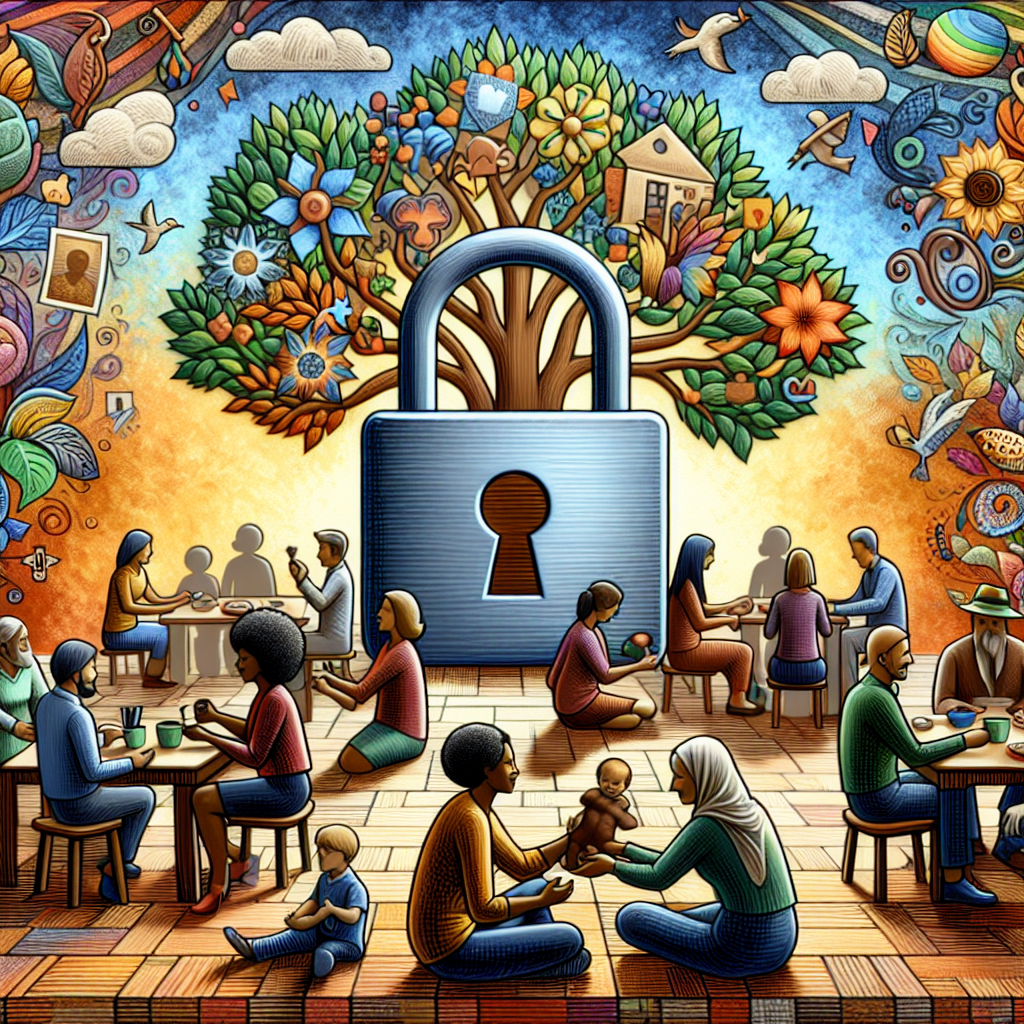In the intricate tapestry of human existence, the threads of friendship and cultural heritage are woven together in ways that shape our identities, relationships, and life journeys. The term “family karma” refers to the inherited consequences of our family’s history, culture, and actions, influencing our behavior and choices. This article delves into the myriad ways in which friendship and culture play pivotal roles in shaping our lives, highlighting the significance of family karma in understanding individual paths.
The Essence of Family Karma
Family karma can be understood through the lens of collective experiences, lessons, and values passed down through generations. It is often said that "what we inherit is who we are," and this rings true in the context of family karma. When we speak of karma, we often think of the Indian philosophical understanding of cause and effect, where our actions dictate our fates. Yet, in the realm of family, this extends beyond mere individual actions to encompass the legacies and narratives formulated by ancestors.
Cultural Identity and Its Influence
Culture plays a fundamental role in shaping our perspectives. It dictates not only our values and beliefs but also our social practices and interpersonal interactions. From the food we eat to the holidays we celebrate, cultural expressions are reflective of our family histories and collective experiences.
Families instill cultural identity through rituals, languages, and storytelling. For example, in many Asian cultures, respect for elders is paramount, often dictated by Confucian ideals that emphasize familial piety. This respect extends beyond the requirement of duty; it fosters a deeper appreciation of ancestral lineage, influencing how friendships are formed and maintained.
Moreover, cultural practices shape the norms of friendship. In collectivist societies, friendships often take on additional meaning, closely intertwined with familial ties. The concept of kinship networks may extend to friends, leading to an intricate web of social support where several layers of relationships exist within the fabric of everyday life. Such cultural frameworks can enhance social cohesion, ensuring that friendships are reliable conduits of emotional and physical support.
The Role of Friendship
Friendships form a vital part of our everyday life, acting as a mirror reflecting our values, choices, and the influence of our cultural upbringing. Through friendships, we encounter diverse perspectives and experiences, which either reaffirm or challenge the legacies of our family karma.
Studies have shown that friendships can influence our behaviors significantly—our choices regarding education, health, and social activities are often the result of these connections. For instance, studies indicate that individuals with friends who prioritize education are more likely to place greater emphasis on learning and personal growth, transcending their family backgrounds.
Alternatively, friendships can serve as an echo of familial influences, reinforcing cultural expectations. The pressure to maintain friendships that align with cultural values can limit personal freedom, trapping individuals in cycles dictated by family karma. Conversely, forging friendships outside one’s cultural context can lead to growth, new perspectives, and an expanded understanding of oneself and the world.
The Dichotomy of Individual Choice vs. Cultural Legacy
While the weight of family karma and culture molds many choices and behaviors, it is also essential to recognize the power of individual agency. People make conscious decisions about how much to embrace their cultural legacies and the influences of their friendships. This continuity and change create a balancing act, pushing individuals to either align with or rebuff familial expectations and cultural norms.
The modern world, with its rapid technological advances and globalization, further complicates this dynamic. Exposure to different cultures through travel, technology, and social media enables individuals to redefine their identities independent of familial expectations. This hybridization of cultures gives rise to ‘cultural fluidity,’ allowing for an examination of past patterns and a re-evaluation of future choices.
Navigating Relationships Within Cultural Frameworks
As individuals navigate their friendships and relationships, understanding the dual influence of cultural expectations and familial legacies becomes crucial. Here are several practical approaches to facilitate this navigation:
Open Communication: For friendships to thrive, the lines of communication must remain clear. Understanding each other’s cultural backgrounds allows for empathy and patience when facing clashes in values or expectations.
Embracing Diversity: Actively seeking out friendships with individuals from diverse backgrounds fosters personal growth. This exposure can challenge limiting beliefs and provide insights that enrich personal and collective experiences.
Self-Reflection: Consistent self-reflection on one’s values, the impact of family karma, and cultural influences can lead to more conscious choices. Assessing the motivations behind one’s actions can illuminate areas where individual choice aligns with or diverges from familial patterns.
Setting Boundaries: Establishing boundaries with friends and family can be essential for personal autonomy. It allows individuals to engage without feeling pressured to adhere to cultural norms that conflict with their identities.
- Building a Supportive Network: Engaging in a community that values both individuality and shared cultural experiences can provide a nurturing environment. Such support networks are crucial in fostering resilience and strength when navigating life’s complexities.
Conclusion
The interplay between friendship and culture encapsulates the essence of our human experience. By understanding the concept of family karma, we can acknowledge that while our familial and cultural legacies significantly shape our identities, individual agency empowers us to redefine those influences. Navigating friendships with awareness of these dynamics allows us to cultivate richer, more meaningful relationships, enabling personal growth and connection amidst the inherited complexities of life.
FAQs
Q1: What is family karma?
A1: Family karma refers to the inherited consequences of our family’s actions, cultural beliefs, and historical experiences that influence individual behaviors and choices.
Q2: How does culture impact friendships?
A2: Culture shapes the values, norms, and practices that influence how friendships are formed, maintained, and understood. In collectivist cultures, for example, friendships may be more intertwined with familial connections than in individualistic cultures.
Q3: Can we break free from the influences of family karma?
A3: Yes, individuals can consciously choose to redefine their paths, embracing or rejecting aspects of their family’s legacy. Self-reflection and personal agency play vital roles in this process.
Q4: How can we foster diverse friendships?
A4: Embracing openness, engaging in diverse community activities, and seeking connections with individuals from different backgrounds can help cultivate friendships that enrich personal experiences.
Q5: What are healthy ways to navigate cultural expectations in friendships?
A5: Open communication, setting boundaries, and building supportive networks are crucial strategies for balancing cultural expectations with personal identities in friendships.
It seems like your message might be incomplete. Could you please provide more details or specify what you would like assistance with?, #Unlocking #Family #Karma #Friendship #Culture #Shape #Lives, #Unlocking #Family #Karma #Friendship #Culture #Shape #Lives, 1736523434, unlocking-family-karma-how-friendship-and-culture-shape-our-lives





